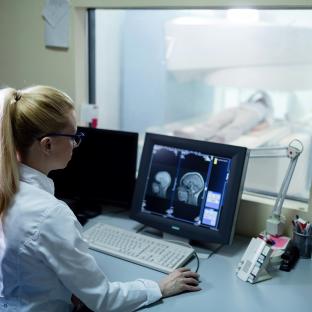On 1 July, an international team of researchers published an article describing the Dunedin Pace of Aging Calculated from NeuroImaging (DunedinPACNI) method in Nature Aging. The study presents a new brain magnetic resonance imaging (MRI) biomarker that estimates how quickly an individual is ageing, based on a single scan. Using data from the long-running Dunedin Study, the researchers developed DunedinPACNI to calculate a rate of longitudinal ageing from cross-sectional MRI data. They then applied the method to participants from the Alzheimer’s Disease Neuroimaging Initiative, UK Biobank and BrainLat datasets. A higher DunedinPACNI score was associated with greater risk of cognitive impairment, faster brain atrophy, and progression to diagnosed dementia. It also predicted physical frailty, poorer health, increased likelihood of chronic diseases as well as higher mortality rates in older adults.
Compared with the brain age gap measure (a measure for the variation between chronological age and calendar age), DunedinPACNI showed similar or stronger associations with clinical outcomes, suggesting its potential as a more precise tool for the monitoring of the effects of ageing. Although that DunedinPACNI and general aging biomarkers are research tools that require further validation before potential translation to the clinic, they could support research focussed at the links between ageing and health as well as the evaluation of potential anti-ageing interventions. The article has been published open access and can be read here: https://doi.org/10.1038/s43587-025-00793-y
